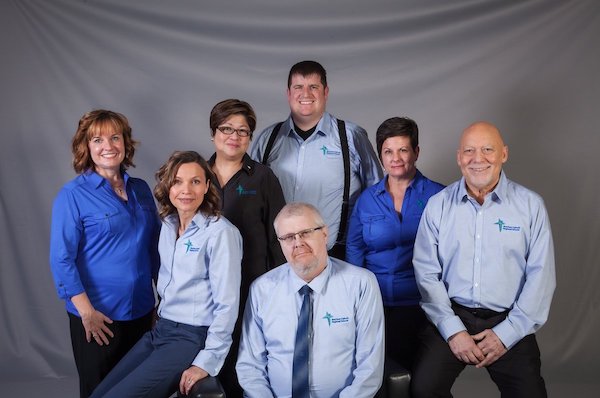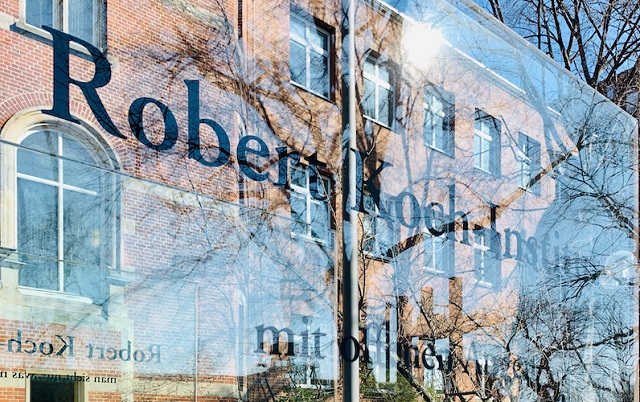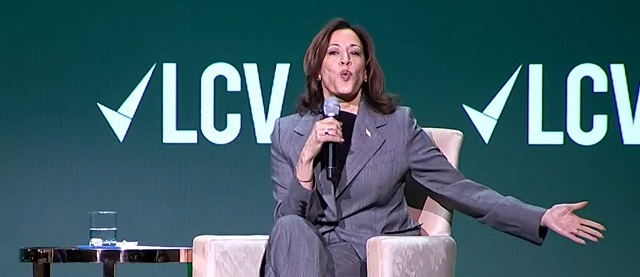Education
Negotiations between ATA and Red Deer Catholic Schools go public

It may be a simple misunderstanding, but it also may be a negotiating tactic. Either way, the Alberta Teachers Association has issued a news release claiming Red Deer Catholic Regional Schools may be considering a lockout. Less than a day after that release came out, Red Deer Catholic Schools issued its own release to clearly explain the situation to the public as they see it.
Here are the two releases:
From the Alberta Teachers Association
Teachers Worried about Red Deer Catholic Moving towards Lockout
Recent actions to sidestep the third-party independent mediator in Red Deer Catholic (RDCRS) teacher negotiations are a troubling sign of things to come. RDCRS board negotiators have taken the unusual step of asking the mediator to remove herself from bargaining even though two dates for mediation were already scheduled.
By asking the mediator to write out, the board has kicked off a two-week cooling off period that lapses on March 12, and opens the door to the board locking out teachers.
“Our desire has always been to reach an agreement without a disruption to schools. Fifty-eight of 61 school divisions have a deal, so we know an agreement is very much achievable if we just use those other settlements as a guide. We strongly believe the mediator will be helpful in getting the parties to a settlement.”
—Sara Lambert, president of Red Deer Catholic Local No 80
While teacher representatives have agreed to bargain on the scheduled mediation dates, they are worried that the board, absent the mediator, is planning to waste time and thwart a settlement. Bargaining will be held on March 7, but teachers have only agreed to continue meeting on March 8 if it is clear that the board is prepared to make meaningful progress on the first day.
“If the board intends to get down to the business of bargaining, we can get a deal done this week. That is what we want. However, if it looks like the board is wasting our time, playing games and ignoring the trend set across the rest of the province, there is no point continuing.”
—Sara Lambert, president of Red Deer Catholic Local No 80
Red Deer Catholic teachers are looking for a settlement that reflects the agreements reached in other jurisdictions, which includes improvements on issues related to substitute teachers and school administrators. The solutions being proposed are low cost and reasonable.
Collective bargaining for teachers in Alberta is a two-phase process where matters of significant cost and broad impact are negotiated at a central table, followed by local negotiations between individual school divisions and ATA bargaining units on other more locally specific matters.
The Alberta Teachers’ Association is the professional association of teachers in Alberta and acts as the bargaining agent for all teachers employed in public, separate and francophone school divisions. The Red Deer Catholic School Division employs approximately 700 contracted and substitute teachers in Catholic schools in Red Deer, Blackfalds, Sylvan Lake, Rocky Mountain House, Innisfail and Olds.
Reply from Red Deer Catholic Regional Schools
Red Deer Catholic Regional Schools Reacts to Recent ATA Media Release
For immediate release – March 6, 2024
The Alberta Teachers’ Association (ATA) announced, in a surprise media release late yesterday, that Red Deer Catholic Regional Schools (RDCRS) is sidestepping “the third-party independent mediator … in teacher negotiations”. Nothing could be further from the truth.
On February 26, 2024, in an email from the mediator to both the ATA and RDCRS, the mediator stated,
“Further to my phone calls with each of you on Friday, I understand that the Employer reviewed the “binary choice” in Sean’s email of February 15, 2024, and agreed the next step should be for the mediator to write out and let the cooling off period begin. However, I understand the Employer is willing to meet with the ATA, without the mediator, on March 7 and 8, 2024 during the hours previously discussed (evening and day).”
The mediator further stated in that email correspondence,
“I have decided to not issue recommended terms of settlement at this time as I feel the parties are too far apart in their current positions. Attached is the letter confirming this decision”.
The email the mediator is referring to on February 15, 2024, came from the ATA chief negotiator, Sean Brown, in which he referred to a “binary choice” as follows,
“Given the results of the meeting and the sentiments shared by members, I believe the next step is a binary choice:
-
The employer bargaining team returns to the table and listens to its teachers. Furthermore, that the employer be prepared to move on the items that members need. (Our preferred option), or
-
The mediator will need to write out and the two-week cooling off period will commence.
We hope to hear back that the employer will return to the table. If not, then they will leave teachers with few options.”
Vice Chair Dorraine Lonsdale states, “RDCRS believes that factual reporting of events, activities, and matters pertinent to our local teacher negotiations with the ATA is now necessary for our communities to understand what is involved in these local teacher negotiations. To this end, RDCRS has opened a section of our website to report to our communities on our local teacher negotiations. Information will be shared on a regular basis as we continue to negotiate with the ATA.”
The bargaining team for RDCRS will attend the scheduled meetings on March 7 and 8, 2024 and bargain with the ATA to reach an agreement that is mutually acceptable to both parties.
“It is the intention of RDCRS to continue a principled and respectful approach while bargaining the local items tabled by both parties. The school division highly values its teachers and in addition, we are responsible to students, parents, and our communities,” Vice Chair Lonsdale continues. “RDCRS has a duty to preserve our programs and services, to manage our complex education system and to be financially accountable for our decisions. These three pillars extend also to our bargaining of collective agreements affecting our employees. RDCRS takes these responsibilities seriously, and these responsibilities always remain an important part of our considerations.”
The Division is committed to serving children and parents with a complete offering of learning opportunities delivered within the context of Catholic teachings and within the means of the Division.
Red Deer Catholic Regional Schools serves over 10,650 students in 21 schools in Red Deer, Sylvan Lake, Rocky Mountain House, Innisfail, Blackfalds and Olds. It also supports the learning of over 850 students in a Home Education Program. The Division is committed to serving children and parents with a complete offering of learning opportunities delivered within the context of Catholic teachings and within the means of the Division.
Education
40 Canadian professors urge Trudeau government to abolish DEI mandates

From LifeSiteNews
“Many agree with us – including senior, tenured faculty – but will not speak publicly for fear of repercussions”
Dozens of Canadian professors have joined together to call for an end to the pro-LGBT diversity, equity, and inclusion (DEI) mandates in universities.
In a May 24 letter to Parliament, 40 Canadian university professors appealed to Prime Minster Justin Trudeau’s Liberal government to abandon DEI initiatives in universities, arguing they are both ineffective and harmful to Canadians.
“While some may view this as a weakness, we hope most will see it simply as an act of conscience from academics no longer able to remain silent,” the professors began.
“These policies disproportionately punish small institutions, are not supported by evidence, employ flawed metrics with no end goal, and are unpopular with the public who funds the research,” the letter explained.
“Many agree with us – including senior, tenured faculty – but will not speak publicly for fear of repercussions,” the letter revealed. “Specifically, they are scared even to question Tri-Council policies relating to equity, diversity, and inclusion (EDI).”
Currently, DEI quotas are mandated across Canada through the Canada Research Chairs program. Under the program, universities must meet specific hiring requirements, skewed in favor of racial minorities and those who identify as “LGBT.”
The letter cited various studies which revealed that the DEI mandates not only harm universities but lead to more discrimination.
The professors referenced a case at Laurier University in Ontario where the institution sought to hire six black and six indigenous faculty.
“During the process, an informal outside inquiry made on behalf of a promising black candidate had to be rebuffed because black people were ineligible,” the letter explained. “This open racial discrimination in the name of fighting systemic racism is one concrete example of negative impacts of EDI.”
Similarly, a February research report from Wilfrid Laurier University social scientist David Millard Haskell, a signatory of the letter, found that there is “no evidence that EDI reduces bias or alters behavior.”
“In fact, DEI interventions have been shown to do harm by increasing prejudice and activating bigotry,” the letter declared.
The professor’s recommendation comes as Trudeau recently pledged $110 million of taxpayer money to hire DEI consultants tasked with looking into a supposed problem of “racism” in Canada.
Indeed, the Trudeau government has spent over $30 million on DEI-affiliated contracts among many federal ministries since January 2019.
This has led to an increase in woke ideology creeping into all parts of society. As LifeSiteNews reported recently, the University of British Columbia (UBC) Vancouver campus posted an opening for a research chair position that essentially barred non-homosexual white men from applying for the job.
Signatories:
Geoff Horsman, PhD
Associate Professor of Chemistry & Biochemistry, Wilfrid Laurier University
David Haskell, PhD
Associate Professor of Digital Media & Journalism, and Religion & Culture, Wilfrid Laurier University
Zachary Patterson, PhD
Professor, Concordia Institute for Information Systems Engineering, Concordia University
Stephen Lupker, PhD
Professor of Psychology, Western University
Lawrence M. Krauss, PhD
President, The Origins Project Foundation
Foundation Professor, School of Earth and Space Exploration, Arizona State University, retired
Kirsten Kramar, PhD
Mount Royal University
Stephen Quilley, PhD
Associate Professor of Social and Environmental Innovation, University of Waterloo
Scott Davies, PhD
Professor of Leadership, Higher and Adult Education, University of Toronto
Edward Vrscay, PhD
Professor Emeritus of Applied Mathematics, University of Waterloo
Martin Drapeau, PhD
Professor of Counselling Psychology and Psychiatry, McGill University
Frances Widdowson, PhD
Political Science professor
Brian F. Smith, PhD
Professor of Business and Economics, Wilfrid Laurier University
Christopher Dummitt, PhD
Professor of Canadian Studies, Trent University
Altay Coskun, PhD
Professor of Classical Studies, University of Waterloo
Ron Thomson, PhD
Professor and Chair of Applied Linguistics, Brock University
Chet Robie, PhD
Professor of Organizational Behaviour & Human Resource Management, Wilfrid Laurier University
Mark Collard, PhD
Canada Research Chair in Human Evolutionary Studies and Professor of Archaeology, Simon Fraser University
Janice Fiamengo, PhD
Professor of English, University of Ottawa, retired
Philip Carl Salzman, PhD
Professor Emeritus of Anthropology, McGill University
Laurence Klotz, CM, MD, FRCSC
Professor of Surgery, University of Toronto
Sunnybrook Chair of Prostate Cancer Research
Chair, Council for Academic Freedom at University of Toronto (CAFUT)
Member, Order of Canada
Division of Urology, Sunnybrook Health Sciences Centre
Brad Fedy, PhD
Associate Professor, School of Environment, Resources and Sustainability, University of Waterloo
Scott Smith, PhD
Professor of Chemistry & Biochemistry, Wilfrid Laurier University
Henry Wolkowicz, PhD
Professor of Combinatorics and Optimization, University of Waterloo
Gail S. K. Wolkowicz, PhD
Professor of Mathematics and Statistics, McMaster University
François Charbonneau, PhD
Associate Professor, School of Political Studies, University of Ottawa
Rima Azar, PhD
Associate Professor of Health Psychology, Mount Allison University
Douglas W. Allen, PhD
Burnaby Mountain Professor, Department of Economics, Simon Fraser University
Rachel Altman, PhD
Associate Professor, Department of Statistics and Actuarial Science, Simon Fraser University
Alexandra Lysova, PhD
Associate Professor, School of Criminology, Simon Fraser University
Richard Frank, PhD
Associate Professor, School of Criminology, Simon Fraser University
John Craig, PhD
Professor, Department of History, Simon Fraser University
Dennis Sandgathe, PhD
Senior Lecturer, Department of Archaeology, Simon Fraser University
Mike Hart, PhD
Professor, Department of Biological Sciences, Simon Fraser University
William McNally, PhD
Professor of Finance, Wilfrid Laurier University
Yannick Lacroix, PhD
Professor of Philosophy, Collège de Maisonneuve
Julie Guyot, PhD
Professor of History, Cégep Édouard-Montpetit
Leigh Revers, PhD
Associate Professor, Department of Chemical & Physical Sciences, Institute of Management for Innovation, University of Toronto
Rob Whitley, PhD
Associate Professor of Psychiatry, McGill University
François Caron
Professor of Chemistry, Royal Military College of Canada, Kingston
Emeritus Professor, Laurentian University
Alberta
Alberta government’s new smartphone restrictions won’t eliminate digital distraction in classrooms

From the Fraser Institute
By Paige MacPherson and Tegan Hill
Research has shown that simply having a smartphone nearby is enough to distract students from completing a task, and that it takes students 20 minutes to regain focus on learning after being distracted. And when schools removed smartphones from the classroom in the United Kingdom, Belgium and Spain, learning outcomes improved, especially for underperforming kids.
According to a new directive from the Smith government, beginning next September there will be restrictions on smartphones in Alberta schools. While the directive is light on details, one thing is clear—given mounting evidence that smartphone distraction can hinder academic performance, unless the province (or individual school authorities) ban smartphones in the classroom, students will continue to suffer the consequences.
Indeed, research has shown that simply having a smartphone nearby is enough to distract students from completing a task, and that it takes students 20 minutes to regain focus on learning after being distracted. And when schools removed smartphones from the classroom in the United Kingdom, Belgium and Spain, learning outcomes improved, especially for underperforming kids.
Moreover, the latest Programme for International Student Assessment (PISA) report found a clear connection between smartphone distraction and declining student achievement, particularly in math. Specifically, 80 per cent of Canadian students report being distracted by the devices of other students in math class—and students who were distracted by smartphones in math class scored 15 points lower on PISA math tests than those who were not distracted. (PISA equates a 20-point drop in student test scores with one year of lost learning.)
Again, this is not just students distracted by their own devices, which are obvious attention-zappers for kids and teens. This is students distracted by the devices of other students. The research on digital distraction and its impact on student achievement makes clear that only a smartphone ban—with very few exceptions—will save kids from digital distraction.
And notably, Alberta’s PISA math scores have fallen 45 points in the last two decades, from 2003 to 2022, which PISA equates with more than two years of lost learning, with the decline predating COVID school closures.
The empirical evidence against smartphones in schools is mounting. But it’s also common sense, and people understand. The Alberta government’s own survey revealed that 90 per cent of more than 68,000 respondents—including parents, teachers, students and principals—had concerns about phone use in schools. This is consistent with other public opinion research in Canada. One survey showed 80 per cent of Canadians support banning phones in public schools. Another found that 51 per cent of Albertans said that phones should be banned in K-12 classrooms, and another 40 per cent said they should not be allowed unless directed by a teacher.
In 2019, the Ontario government issued a similar directive restricting smartphones in K-12 schools, which was nearly pointless because the government left the specifics up to school boards (just like the Smith government is now leaving the specifics up to school authorities in Alberta). Without being able to point to an overarching policy, Ontario teachers said they spent too much time surveilling and nagging in class, and many stopped trying altogether.
In its directive, the Smith government indicated there will be exceptions not only for reasonable health and medical needs (e.g. blood sugar monitoring) but also for “learning needs, and for educational purposes.” To actually eliminate digital distraction in the classroom, the provincial education ministry must support school authorities, who must support principals, who must support teachers to help enforce an actual ban.
While we should be skeptical of reflexive government “bans” in general, smartphones clearly impede student learning and socialization in schools. Banning smartphones in K-12 public government schools is the right move. But a patchwork approach, which accommodates endless exemptions, won’t free Alberta classrooms from the negative effects of digital distraction.
Authors:
-

 Brownstone Institute1 day ago
Brownstone Institute1 day agoThe Media Refuses to Accept Covid Reality
-

 Alberta1 day ago
Alberta1 day ago‘Fireworks’ As Defence Opens Case In Coutts Two Trial
-

 National1 day ago
National1 day agoLiberals offer no response as Conservative MP calls Trudeau a ‘liar’ for an hour straight
-

 COVID-191 day ago
COVID-191 day agoLeaked documents: German gov’t lied about shots preventing COVID, knew lockdowns did more harm than good
-

 Business1 day ago
Business1 day agoFederal government seems committed to killing investment in Canada
-

 International1 day ago
International1 day agoSwitzerland’s new portable suicide ‘pod’ set to claim its first life ‘soon’
-

 Business1 day ago
Business1 day agoEstonia’s solution to Canada’s stagnating economic growth
-

 Economy1 day ago
Economy1 day agoKamala Harris’ Energy Policy Catalog Is Full Of Whoppers






